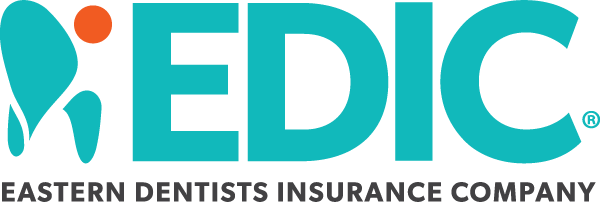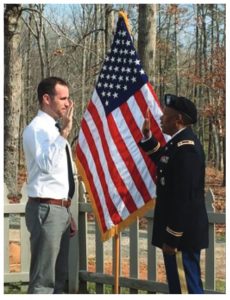Since October 2016, I’ve gone through the process of applying for the Army Reserves and commissioning as a captain, O-3 to a unit based near me in Atlanta. A great benefit of this opportunity is loan repayment options, but I want to make it abundantly clear that you should not apply to the military for the sole reason of loan repayment. Not only is it a duty that should be carefully considered for personal reasons, but it is also an extremely arduous application process that may become aggravating if you are in it for the wrong reasons ie: money. In this post, I will go over the process I went through to get into the Army Reserves, then will summarize what I “get” in return.
I’ve always been interested in serving my country after dental school. I applied for the HPSP (Health Professions Scholarship Program) prior to school but was too late applying for consideration. Throughout dental school, at Boston University School of Dental Medicine, I would speak to military booths at ASDA conferences, continuing education events, and even went to recruiting offices in my junior year. In July 2016, after graduation, I started working with my Atlanta, Georgia recruiter for the Army, explaining to him that I had a dental associate job in the private sector but was interested in the Reserves.
The Application Process
The first step is to fill out a large packet of paperwork that needs to have the right signatures and initials all in the correct places and documents for just about everything. This part doesn’t take much brainpower but it takes a lot of time because you have to gather information about your family members, gain letters of recommendation, and document every address you’ve lived at for the past 10 years. It’s very time-consuming. Once I completed these documents, I was taken to a day-long physical at MEPS (Military Entrance Processing Station) to verify my document packet and make sure I was medically qualified. Your recruiter will submit your packet to aboard.
The board reviews your packet and either select you or not. Your recruiter can’t give you too much information on this because the board will be faced with the budget, the current slot availability, and other things that determine how many selects they can review. Do not be fooled into thinking there’s a guarantee that you get in. Also, don’t get discouraged if it takes a long time to hear back from the board. In November 2016, four months after my application process, I heard I had been selected.
I received a phone call in March 2017 that everything from the board had been signed by the Department of Defense and I was ready for commissioning. I had a nice ceremony at my house with my family where I signed a contract and swore an oath of office. It was a very exciting time and seemed like everything was done and in motion.
In April 2017, after being selected, I took a fitness test, the OPAT (Occupational Physical Assessment Test) to be assigned to my unit for final clearance. I was then cleared to go get my military ID and get my uniform. This was done with my recruiter to escort me around the base. I met my unit administrators, the full-time team that runs the show when the unit is not drilling on the weekend.
Finally, in May 2017, I was contacted by my unit administrator and was told I needed to start my online training. It wasn’t glamorous but taking webinars on phishing scams and web hacking was my first report to duty.
After almost a year from the application process, I’m officially on a normal schedule with my unit to report for drill weekends. If you’re interested in signing up, know that this process took almost a year of “hurry up and wait”. If you are interested in the military, look up medical recruiters not your local enlisted recruiter, which is the best way to get the most recent information, details, and timelines.
Expectations
Okay, so what is expected of me for my service? I can only speak to the Army Reserves as of my application from 2016-17 but here’s my personal highlighted list for both Giving and Getting from my newly acquired position in the military:
What I Give
• I owe at least 8 years of service, but not all have to be active. Staying in longer can lead to promotion and can lead to retirement after 20 years (can combine with any previous active duty time towards retirement, as well).
• I report for drills 1 weekend a month. This is usually 2 days, but it can be 3 days if need be.
• There is a month each year that has 2 weeks AT (annual training). This can be a wide range of things and I can’t speak on this too much yet.
• Basic Officer Leader Course (BOLC) is a 6-week mini-Bootcamp for officers. Dentists are known to be babied in the military, but this is an opportunity to learn the ins and outs of the Army while getting a light taste of boot camp in San Antonio: 3 weeks are classroom-based, which can be done online from home, and 3 weeks are field training onsite.
• I can be deployed at any moment the Army needs me. Deployment for Reserve dentists has to be conducive to maintaining a private practice, so the deployments are left at 90 days.
• Physical fitness is a given for the military. I’m not expected to be an Olympian, but I’m a fool to not keep in shape and watch what I eat a little more than if I didn’t have physical standards.
What I Get
• $40k a year in loan repayment or $25K cash bonus a year. The loan repayment caps out at $250k at 7 years. Um… sign me up.
• Position of Captain, O-3 (Army and Air Force, Navy is Lieutenant because Captain is O-6) upon commissioning. This is taking a major leap into the ranks, so this is quite an honor.
• Pay for each drill weekend and AT (and the one-time BOLC) based on Captain (or Navy Lieutenant) salary, including housing allowances for the AT if not on a base near you.
• Education opportunities too numerous to list with the Army. For example, I’m interested in Airborne School once I get settled in.
• Affordable life insurance. It’s never fun to plan for unforeseen tragedy, but this helps make it an affordable option.
• And, not to be cliché, but the opportunity to serve your country. If this isn’t the main appeal on this list, I would highly recommend reconsidering applying. There is a lot of work that goes into this commitment and it is an honorable position, so it may not be the simplest means to loan repayment (NOT discounting how much it helps!!).
Debt Management in The Military
I think I’ve talked enough about how debt management is not the primary reason to apply to the military. I can now briefly discuss how this new position in the Army Reserves is going to affect my student loans.
Upon graduation, most financial advisors suggested I sign up for the PAYE or REPAYE income repayment plans. I won’t go into the details of those in this post, but I was never going to pay off my loans on those plans. The plan was to have remaining balances forgiven at the end and pay tax on the forgiven amount. I’m going, to be honest; I hated the idea of this. It seemed like cheating and that it would only add burden to taxpayers because I was working a system. With the loan repayment help, I’m getting for my service, this is no longer the case. I WILL pay off my debt. I can’t tell you how long it will take me, but it’s a huge relief to know that the plan is not to pass my debt along to Uncle Sam/everyone else. There are several programs that have loan repayment, but the military is a forerunner in this arena and has some of the most enticing options.
If you DO sign up, the loan repayment will be very structured and I can’t tell you every detail until my taxes come around in 2018. The way it works is that you get your loan repayment in one lump sum at the end of the year of service. A year of service starts at commissioning and depends on getting enough credits going to drill, AT, BOLC, events, etc. to qualify. This IS taxable money! So it’s not $40k taken off your loans.
Also, your loans must be federal loans to qualify for repayment and it only repays principle (will not pay interest with repayment funds). That’s huge… make sure you don’t refinance any loan principal that you plan on getting help with via repayment funding. Financial planning is key to all of this. When we’re talking hundreds of thousands of dollars in income/debt/ repayment, do not feel bad to ask for help.
If you’re seriously considering signing up for Army Reserves, please feel free to reach out to me with any questions your recruiting office can’t answer. There’s a lot of information and one can only help if they have experienced the process themself. Luckily, I had a great and committed recruiter that had experience as well. I’d be happy to answer questions about Army life, applying, what to expect, or how it helps with loans.
David Lane, DMD
CPT, 63A
7236th MSU
daveslane@gmail.com


